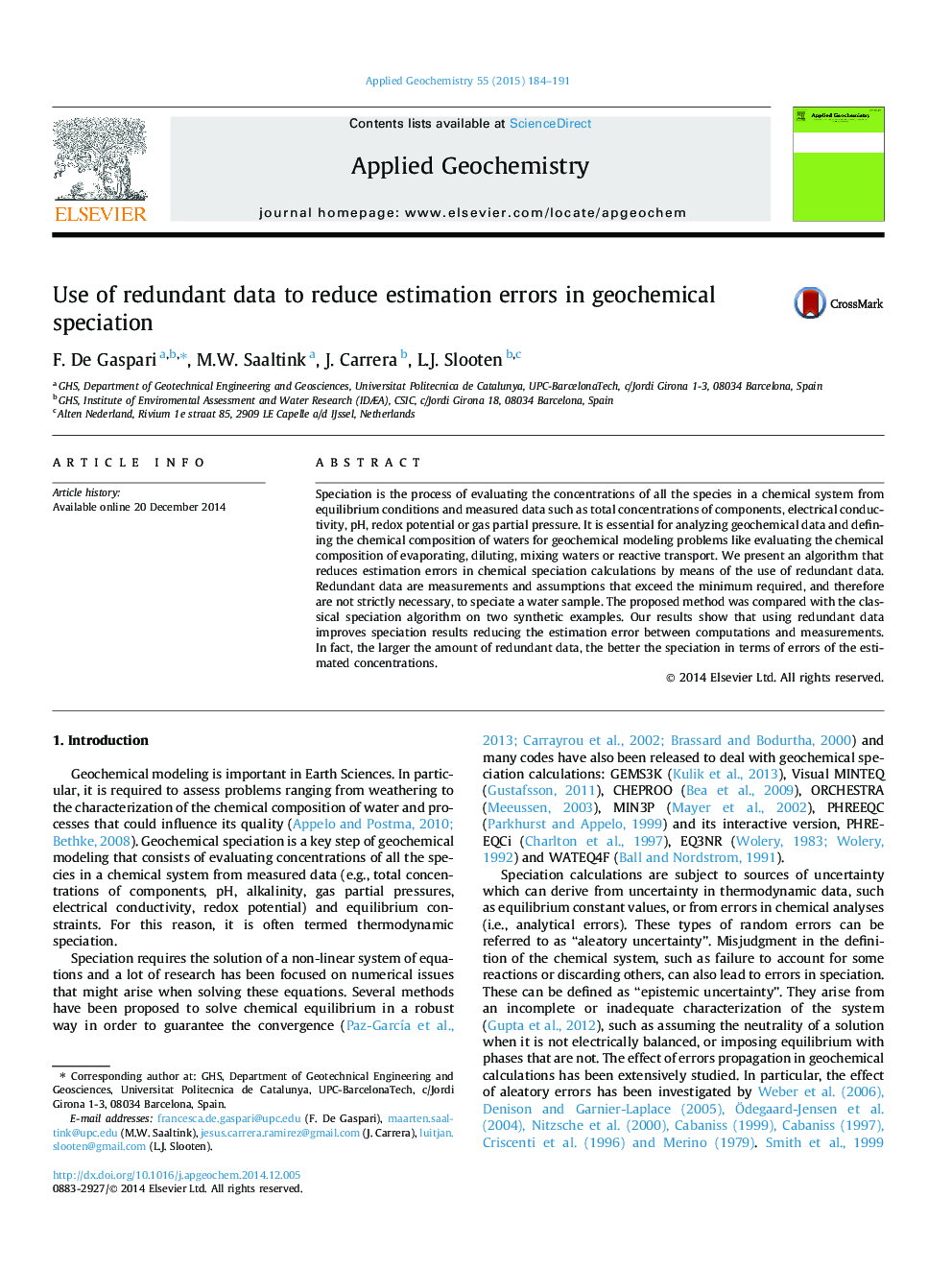| Article ID | Journal | Published Year | Pages | File Type |
|---|---|---|---|---|
| 6335218 | Applied Geochemistry | 2015 | 8 Pages |
â¢The use of redundant data can help improving the results of geochemical speciation.â¢Results are better in terms of mean squared error and variance of estimation errors.â¢The larger the amount of redundant data, the better.
Speciation is the process of evaluating the concentrations of all the species in a chemical system from equilibrium conditions and measured data such as total concentrations of components, electrical conductivity, pH, redox potential or gas partial pressure. It is essential for analyzing geochemical data and defining the chemical composition of waters for geochemical modeling problems like evaluating the chemical composition of evaporating, diluting, mixing waters or reactive transport. We present an algorithm that reduces estimation errors in chemical speciation calculations by means of the use of redundant data. Redundant data are measurements and assumptions that exceed the minimum required, and therefore are not strictly necessary, to speciate a water sample. The proposed method was compared with the classical speciation algorithm on two synthetic examples. Our results show that using redundant data improves speciation results reducing the estimation error between computations and measurements. In fact, the larger the amount of redundant data, the better the speciation in terms of errors of the estimated concentrations.
